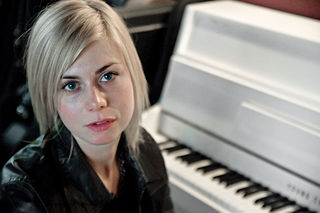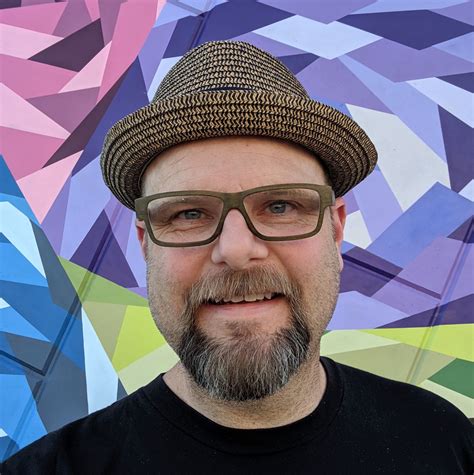A Quote by Gary Paulsen
I can't rightly say where deciding to write about the American Revolution came from; I had bits and pieces of information about the war and about the country at that time that I'd collected over the years and, of course, I'm comfortable in the woods, so, finally, it just all feel into place.
Related Quotes
I work in bits and pieces. When I'm touring it's difficult. After touring, when I have space and time, it's a process, something I've been doing since I was 10 or 11 years old. I collect lyrics, melodies, bits and pieces, and finally it all comes together. It's hard to say - I've been trying to figure out how the process works.
I had a student once come up to me and we were talking about this incident, and, of course, I never had the right thing to say. But later on, I realized I should have said: Don't write about trying to change the world, just write about a changed world or a world that's not changing. Let that do the work.
My father saw that there is no way we can stay in the G-20 and grow with this level of corruption. In early 2015, one of his first orders to his team was to collect all the information about corruption - at the top. This team worked for two years until they collected the most accurate information, and then they came up with about 200 names.
I think that most people don't think in terms of an American revolution, they think in terms of a Russian revolution, or even a Ukrainian revolution. But the idea of an American revolution does not occur to most people. And when I came down to the movement milieu seventy-five years ago, the black movement was just starting, and the war in Europe had brought into being the "Double V for Victory" [campaign]: the idea was that we ought to win democracy abroad with democracy at home. And that was the beginning of an American revolution, and most people don't recognize that.
The hardest bits of my book to read were the easiest bits to write because they were the most immediate. Probably because I had never stopped thinking about them on some level. Those bits I was just channelling and those were the most exciting writing days. The bits I found harder were the bits that happen in between, you know, the rest of living. There were whole years, whole houses, that I just got rid of.
I don't know that I would have the courage to come over to a new country where the religion is different, the language is different, where I don't have any money. The thought of starting over like that in the way that many refugee families have to start all over again - that's an incredible thing to think about. One of the things I tell about Refugee is that unless you're Native American or a descendant of slaves, your family immigrated to this country - whether they came over on the Mayflower or whether they came over on a raft last year.
I regret that I had to leave my country. But I had to do it in order to achieve and decide my own fate. I was forced into it. Democracy came about 15 years too late for me. But I have to say that it's there now, and Czech Republic is a fantastic country; it always was but just had the wrong regime at the top.
While I was drawn to the Renaissance, my first (unpublished) novels took place in modern times. When the subject of alchemy started creeping into my stories, an astute mentor observed that the bits about alchemy might fit better in another time frame. When I finally decided to weave the pieces about the medieval science into historical settings, a successful novel began to emerge. (And I dusted off that art history book, and put it to use once again.)
The age of the book is not over. No way... But maybe the age of some books is over. People say to me sometimes 'Steve, are you ever going to write a straight novel, a serious novel' and by that they mean a novel about college professors who are having impotence problems or something like that. And I have to say those things just don't interest me. Why? I don't know. But it took me about twenty years to get over that question, and not be kind of ashamed about what I do, of the books I write.
And in the end, of course, a true war story is never about war. It's about sunlight. It's about the special way that dawn spreads out on a river when you know you must cross the river and march into the mountains and do things you are afraid to do. It's about love and memory. It's about sorrow. It's about sisters who never write back and people who never listen.
In the United States, there's definitely some controversy about birth control in general, and I think we needed to split the debate and have people realize that we actually agree as a country about contraceptives. Over 93 percent of American women say they use contraceptives, and they feel very good about it.
So about 80 years after the Constitution is ratified, the slaves are freed. Not so you'd really notice it of course; just kinda on paper. And that of course was at the end of the Civil War. Now there is another phrase I dearly love. That is a true oxymoron if I've ever heard one: "Civil War." Do you think anybody in this country could ever really have a civil war? "Say, pardon me?" (shoots gun) "I'm awfully sorry. Awfully sorry."
As I looked about the world, so much of it impoverished, I became increasingly uncomfortable about having so much while my brothers and sisters were starving. Finally I had to find another way. The turning point came when, in desperation and out of a very deep seeking for a meaningful way of life, I walked all one night through the woods. I came to a moonlit glade and prayed.
I've been in America for almost ten years. I've had many parts of the American experience. I've been all over this country and seen many different parts of it. It's just that I'm not an American. I've never become an American. I'm talking about the whole thing-psychologically, citizenship, the whole trip. Of course I've definitely been influenced by America-I'm definitely influenced by the music and the culture.






































